Edmunds Comes Out Against EV Tax Credits
Though it appears that it may take even more government stimulus to achieve President Obama’s goal of putting one million electric vehicles on the road by 2015, online auto juggernaut Edmunds has come out against existing EV tax credits in a commentary by CEO Jeremy Anwyl. Anwyl’s argument is rooted in the American Council for an Energy Efficient Economy‘s finding that the tax credit-qualifying Chevy Volt is only the 13th-greenest vehicle on the market while its greenest, the natural gas-powered Honda Civic GX, remains unsubsidized. Anwyl argues
The problem is this: When the government picks a technology, it crowds out development of other, potentially promising alternatives, like the natural gas engine used in the Honda Civic GX (above). LNG is not a new technology. I had friends who converted their vehicle to natural gas back in the Seventies. But how much are we hearing about it today? Or what about hydrogen fuel cells? A few years back, they were the stars of the major auto shows. Were any fuel-cell vehicles on display at the recent Detroit auto show? No. Every automaker was busy touting EVs.
A second problem is that there is a Cash for Clunkers-like aspect to these tax credits. Consumers buying Leafs and Volts right now are not that price sensitive. They are EV enthusiasts, early technology adopters. In other words, we are forking over deficit-funded dough to stimulate sales of vehicles that would be sold anyway. (Or in some cases, not sold.) Sure, at some point EVs are still too expensive to go mainstream. But is this the government’s (i.e. taxpayers’) problem?
Anwyl admits that he thinks EVs are “cool,” but his second argument is especially damning. Already, the proposed 2012 budget would make EV tax credits available as a discount at the point of purchase, a move likely to enhance the “Cash-for-Clunker-like aspect” considerably. But then, the President hasn’t promised the nation a million natural gas cars, has he?
Nor does Anwyl address the minor issue of the Nissan Leaf’s apparent tie with the Civic GX for “greenest car,” leading one to wonder whether the ACEEE’s list contains other, non-green pure-electric vehicles. Or how EV “greenness” can even be calculated on a non-local basis. But even if we take for granted that the ACEEE’s ability to rank vehicles “ based on official emissions and fuel-economy tests, and other specifications reported by auto manufacturers” is solid, and that natural gas vehicles and plug-in vehicles are equally “green,” EVs do have the potential to become “greener” as “greener” electricity sources (including, say, natural gas) replace dirtier ones.
Still, natural gas cars are a viable option in many areas, and they highlight the real issue with federal EV credits: they don’t recognize the importance of locality any more than the ACEEE appears to. Here on the banks of the dam-draped Columbia, the electric car makes a far more compelling “green” case for itself than the natural gas car; in Oklahoma, Wyoming or Texas, the calculation might be quite different. Killing all green car subsidies seems unlikely in the face of the President’s pledge, but this seems like a good time to at least rethink them. And since Anwyl offer much beyond the vague implication that plug-in tax credits should be cut, here’s another, possibly more politically-viable suggestion: instead of a national, dealer-level plug-in subsidy, simply make “green car” subsidy funds available to states, with the mandate that incentives could go towards the most locally-effective options. This model offers both better-targeted stimulus, and more competition between technologies… which, in theory, makes everyone happy. Right?
More by Edward Niedermeyer
Latest Car Reviews
Read moreLatest Product Reviews
Read moreRecent Comments
- Analoggrotto Hyundai is the greatest automotive innovator of the modern era, you can take my word for it.
- MrIcky My maintenance costs are pretty high because I enjoy doing questionable things (when it is safe to do so of course). Tires and frequent oil changes seem a small price to pay.
- MaintenanceCosts Dammit, my Highlander's two years too old.
- Analoggrotto so what
- Shipwright I wonder where Speedmaster is based. Oh Looky! it's China! who would have thought.


















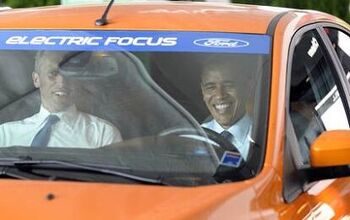






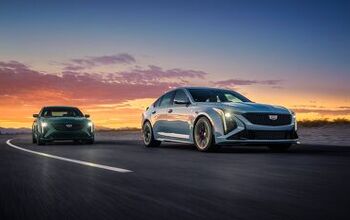

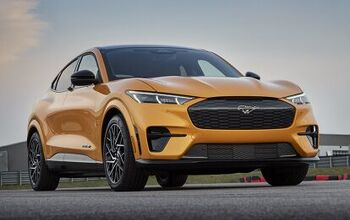
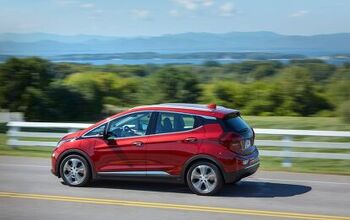

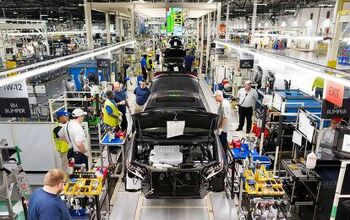


Comments
Join the conversation
He seems to either ignore or is unaware that the Civic GX has a $4000 federal tax credit available. That's a bit less than the (up to) $7500 federal tax credit for BEV/PHEV, but it's a bit conspicuous in the absence of mention.
EV tax credits are a perfect sample for politics going mad. If the goal is to reduce the amount of oil/gasoline burned in order to safe the world, why is it, that car drivers are the target number one? If electric energy is so efficient, why not mandate that every household has to have electric heating (EH)? Let's start with a million households by 2015. No range anxiety with that, for sure. Problems with power networks in rural areas? Too expensive, compared to other methods? Don't care. Go ahead. At least, you are doing something, however silly. I'm afraid that the energy problems involved are definitely not going to be solved by politicians subsidizing the EV.